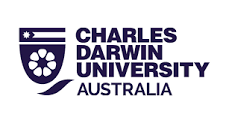The Bachelor of Information Technology will prepare you to be responsible for more than just systems or software; you will be developing creative and innovative technologies for the modern world.

Overview
The Bachelor of Information Technology will prepare you to be responsible for more than just systems or software; you will be developing creative and innovative technologies for the modern world.
Throughout your studies, you will develop knowledge and skills in areas such as web design and development, networking, application development and systems.
You will also be encouraged to be an open-minded problem solver, a creative thinker as well as an engaging communicator, which will help progress your career in the IT industry.
Study opportunities are also provided to assist students to undertake sought-after industry modules, including Cisco and Microsoft certificates.
Professional recognition
Graduates are eligible for membership of the Australian Computer Society (ACS) at the Professional Level. Students must select specialist units such that at least one of the three groups of specialist units are included.
Pathways
Pathways for VET to Higher Education
Guaranteed credit transfer arrangements are available to students commencing a bachelor degree at Charles Darwin University with completed Certificate IV, Diploma, Advanced Diploma or Associate Degree qualifications in the same field or discipline. Students who hold completed qualifications should refer to the additional information provided about Advanced Standing and Credit Transfer and Pathways using the links below:
Credit Transfer and Pathways
Advanced Standing
Pathways for Higher Education to Higher Education
For information about credit transfer available to students with complete or incomplete study at this or other Institutions refer to Pathways for Higher Education to Higher Education
Entry Requirements
Admission requirements are met by one of the following:
Successful completion of the Northern Territory Certificate of Education and Training (or equivalent) and the awarding of an Australian Tertiary Admissions Rank (ATAR) of at least 60*.
Successful completion of a national qualification at Certificate III level or higher.
Successful completion of at least 0.5 year of full-time study (or equivalent) of a higher education degree/diploma.
Overseas secondary or tertiary qualifications considered equivalent to the above Australian qualifications.
Attainment of a STAT Multiple Choice score of 140.
Successful completion of the Tertiary Enabling Program, the Preparation for Tertiary Success courses, or other recognised tertiary preparation course.
Submission of an acceptable personal competencies statement and/or employment experience.
Defence members with service of 1 year or more at the following ranks (or higher) meet the academic entry requirement for this course:
Air Force: Aircraftman/Aircraftwoman, Corporal, Leading Aircraftman/Aircraftwoman
Army: Corporal, Lance Corporal, Private
Navy: Able Seaman, Leading Seaman, Seaman
Current School Leaver Pathways:
Best of 3 Year 12 subject grades
School recommendation program
Charles Darwin University is a truly unique institution.
With our home and our heart in the Northern Territory, we embrace the inclusive, resilient, and courageous spirit of the NT in our campuses and delivery sites that reach a diverse footprint from the capital cities of Darwin, Brisbane and Sydney to the regional hubs of Alice Springs, Palmerston and Katherine and our remote locations in Nhulunbuy, Tennant Creek and on Country – in community, with the community.
Our multi-campus, dual-sector status, virtual and online expertise, course profile, research activities, delivery methods, and operation result from our commitment to the regions in which we operate.
The Northern Territory spans approximately one-sixth of Australia’s landmass and yet is home to just one per cent of the population, of whom 30 per cent are First Nations Peoples.
Due to our location, we are in an enviable position to contribute to the future opportunity of Northern Australia, and our neighbours in the Asia Pacific, through our innovative and impactful training, education, and research.
The University now has the new Strategic Plan in place, which will guide the development of our university over the next five years. It gives us a very clear road map to building a bigger, better and stronger university, valuing and empowering our people to make a difference.
CDU believes in the transformative power of training, education and research to change people’s lives for the better. We have a collective responsibility to make sure that our training, education and research are not only high quality and delivered by outstanding educators and researchers but are accessible and meaningful. What we do matters to our communities.
We are a deeply connected university, working in partnership and collaboration with First Nations peoples, our communities and industries, government, and alumni to address the needs of the Northern Territory and regional, rural, and remote people nationally and globally.
We are committed to making significant contributions to the social, economic and environmental sustainability of the NT and Northern Australia and to export our expertise nationally and globally.
© 2025 coursetakers.com All Rights Reserved. Terms and Conditions of use | Privacy Policy